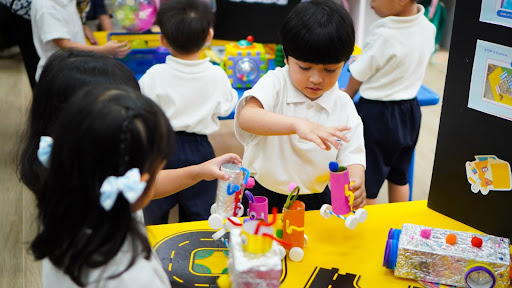Science learning refers to acquiring knowledge and understanding about the natural world through scientific inquiry and exploration. It involves actively engaging with scientific concepts, theories, and methodologies to deepen one's understanding of the world's workings.
Science learning for children refers to introducing young learners to scientific concepts, principles, and methods in an engaging, age-appropriate, and hands-on way. It involves nurturing children's curiosity, promoting exploration, and fostering a sense of wonder about the natural world.
Science learning for children often takes a playful and interactive approach, encouraging them to ask questions, make observations, and participate in hands-on experiments. It aims to develop their critical thinking skills, problem-solving abilities, and scientific literacy early.
By providing opportunities for children to explore scientific phenomena, conduct simple experiments, and make connections to their everyday lives, science learning helps them develop a solid foundation in scientific thinking. It lays the groundwork for their future scientific pursuits. It empowers children to become active learners, encouraging their natural curiosity and promoting a lifelong love for science and discovery.
Parents play a crucial role in supporting their children's science learning for several reasons. First and foremost, science education equips children with valuable skills and knowledge essential for their future success. Parents help cultivate critical thinking, problem-solving abilities, and a strong foundation in scientific literacy by actively supporting and encouraging their children's interest in science.
Supporting children's science learning also strengthens the parent-child bond. Science-related projects or experiments foster quality time, collaboration, and shared learning experiences. Parents can provide guidance, resources, and mentorship, allowing their children to explore scientific concepts in a safe and supportive environment.
So this is five tips to support children's science learning:
 Foster a sense of curiosity and wonder in children by encouraging them to ask questions about the natural world. Support their exploration of interesting topics and provide opportunities for them to seek answers through scientific investigation.
Foster a sense of curiosity and wonder in children by encouraging them to ask questions about the natural world. Support their exploration of interesting topics and provide opportunities for them to seek answers through scientific investigation.
1. Encourage Curiosity
 Foster a sense of curiosity and wonder in children by encouraging them to ask questions about the natural world. Support their exploration of interesting topics and provide opportunities for them to seek answers through scientific investigation.
Foster a sense of curiosity and wonder in children by encouraging them to ask questions about the natural world. Support their exploration of interesting topics and provide opportunities for them to seek answers through scientific investigation.


